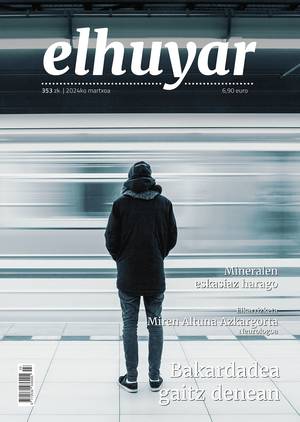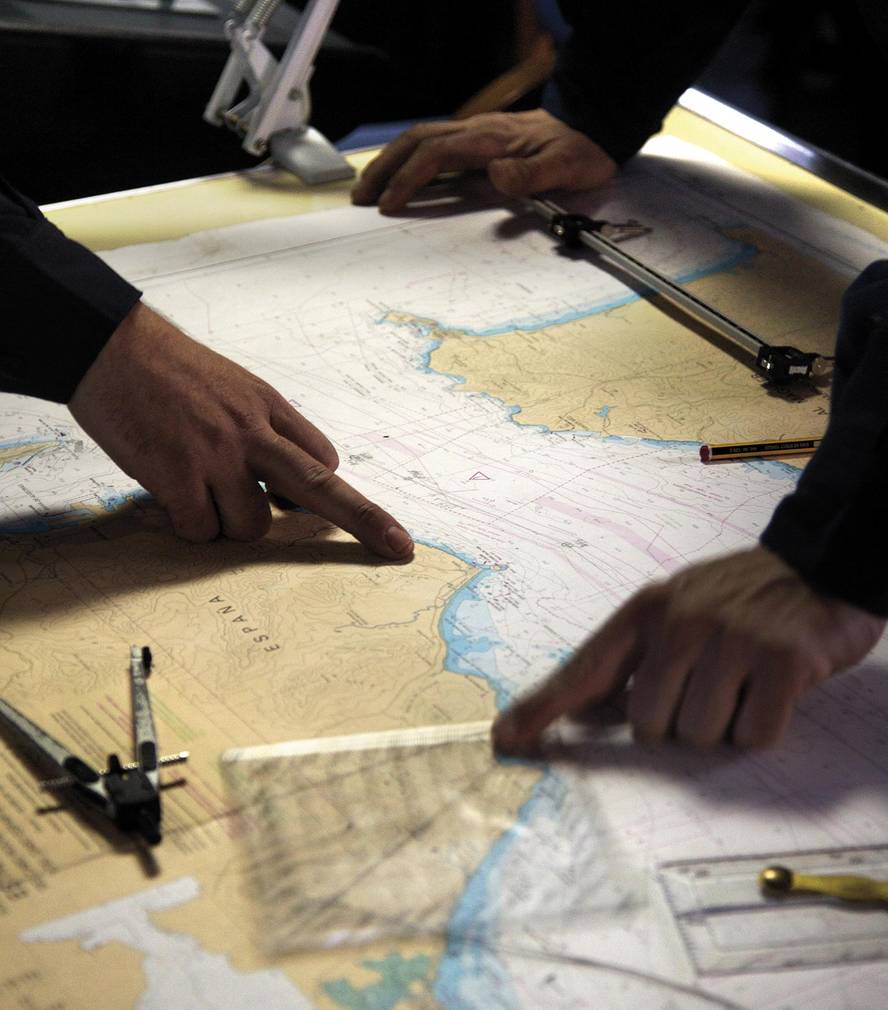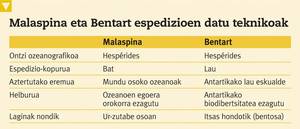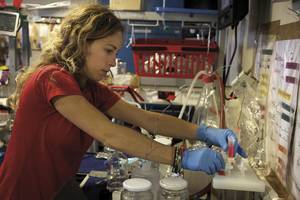Oceanographic expeditions, occupation of ships
Malaspina was the last. During the seven months that the Ozanographic expedition has lasted, it has appeared in the media where the Hesperides ship was going, in what the researchers were, etc. The tour around the world ended in mid-July and the media have concluded this adventure. For researchers, however, it is then that a real work begins that will lead them to know an ocean still unknown.
For many groups of researchers, "the expedition is a fieldwork for the collection of samples; now they have a collection of samples to analyze, a lot of huge samples: some will analyze from the taxonomic point of view, others will have to make a collection of genomes, etc. explains Juan Iriberri, UPV microbiologist who participated in the Malaspina expedition.
This was not the work of the Iriberri team in Malaspina: "We had to do some of the research work on the boat itself," he said. Our task has been to measure bacterial activity at each sampling station. Specifically, we measure the hydrolytic activity of bacteria, that is, their ability to divide the macromolecules that surround bacteria from a certain point and depth of the ocean."
In fact, in the sea, organic matter is usually in the form of macromolecules such as large protein chains or carbohydrates. Bacteria can only contain amino acids or sugar monomers. Therefore, they expel the fragmentation enzymes of macromolecules and feed on them. Well, "we have measured how this activity changes with the depth in the sampling stations. To measure the activity it is essential that the bacteria remain alive and remain in the same conditions as in the place where they have been received. Therefore, as we left the sea we had to start analyzing them as soon as possible," explained Iriberri.
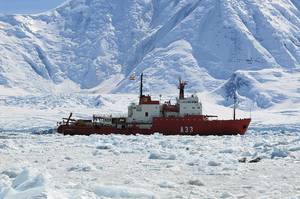
Despite having had to carry out the first studies right there, according to Iriberri, "we have not yet obtained results, we will need a year to draw conclusions and meet with the other groups that have participated in microbiology studies. We have a lot of data to analyze and interpret."
This work described by Iriberri refers to the team of researchers who have worked with microorganisms. Other thematic blocks (phytoplankton, zooplankton, pollutants, oceanic optics, etc.) have been treated in the Malaspina expedition. ). "Throughout the trip, many of them have only done a collection job, now they have to start working with the immense group of samples collected: we have collected samples at 170 stations or points in the oceans around the world and, although we had planned to collect 70,000 samples, we have finally received about 200,000," says Iriberri.
Difficulties: financing, coordination...
Iriberri sees clearly that for the future work they will need more resources: "The Malaspina project has mainly financed the expedition. From now on we hope that the teams that we have participated in the expedition get enough funding to continue working. The level of knowledge we can contribute to society will depend on the resources we obtain, depends on money.”
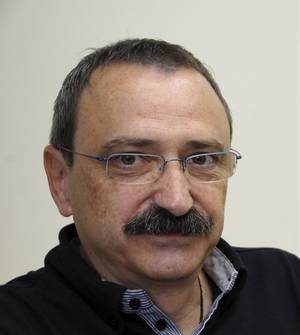
UPV-EHU zoologist Iñaki Saiz has extensive experience in financing post-expeditions. Saiz has participated in the four Bentart expeditions that the project has had. The first was performed in 1994 and the last in 2006. Bentarte aims to study the biodiversity of the Antarctic seabed. "The first was the most tender area of Antarctica, the island of Livingston, because we had no experience. Thus, we gain experience and self-confidence. So you think the team can move forward and it will be easier to get funding for future expeditions. But it is not always so. Sometimes it has happened to us to ask for grants to make expeditions and receive again and again the refusal", recalled Saiz.
In order to analyze the material collected in the trips, "we have been quite poorly funded," says Saizek. We have had to obtain the necessary resources to analyze the material in other ways, such as taking time out of an ongoing project or taking advantage of funds from the Spanish Institute of Oceanography and the University." They also give small impulses to the material collected, giving the opportunity to investigate young researchers.
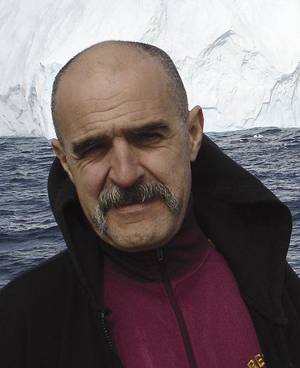
In fact, "the working sequences for sample analysis are very long: each group specializing in each group of animals must separately identify species, count, etc. The truth is that if we start digging into something, there are soon new things and interesting things to publish." But the problem is that "we have to do those tasks with many other tasks, which are schools, which are other projects..."
Both believe that it is interesting and enriching to join works of researchers from different disciplines, in addition to their personal work. According to Saiz: "It is very interesting to combine the results obtained in your animal group and relate them to the environmental conditions found in Antarctica." Iriberri also believes it will be the "prettiest part" of Malaspina: "In our case, for example, it is important to analyze the activity of bacteria, but the results will be enriched exponentially if we know which bacteria perform this activity, and if to this we add the amount of organic matter that had dissolved at each point in which we have made the measurements, and qualitatively knowing that there was that organic matter, etc. Each of these studies has been conducted by a research team and when we gather them we will obtain information that allows us to make leading publications at the international level."
From the beginning they have intended to unify works on the Malaspina expedition. "This is what really matters in Malaspina," said Iriberri. To carry out the work entrusted by all the groups in the agreed period and to coordinate the activities of all of them is, however, "a very laborious work", as Saiz has been able to verify in the Bentart project.
Full discoveries
Despite the difficulties, for Saiz "it is a great efficiency to return to Antarctica. If I have the opportunity, I will do my best to go. It fascinates you a few days and it is wonderful to see first-hand what is spoken in literature. For example, gigantism. The animals here are huge. Ascites (robes), for example, are 1-2 centimeters. There, however, they are animals of 30 centimeters, they almost put their fist in their siphons! ".
Unknown discoveries have been made in the Bentart project. As Saiz explained, "the most striking thing has been to find new species of fish. In fact, it is usually very common to find species of unknown invertebrates, but it is more rare to find new species in vertebrates, as well as new genera. We, however, have found quite a lot, especially in the 2003 campaign."
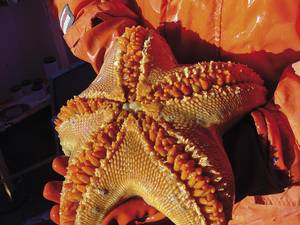
In general, "we have published much more than we think since we started the project," says Saizek. Each year, a group person publishes three or four articles in high-impact journals, with more than two hundred publications. And surprisingly, five years have passed since the last campaign and we continue to publish."
Saiz believes that large projects of this type are inertia in its publication: "Since the study of the samples takes so long, the time of publication of the works is also very long. There is still much to be analyzed."
Now, it would be best to meet for another expedition," says Saizek. We are human beings and stimuli drive us. The motivation that gives you to participate in the expeditions is cooling over time. Now we have been like that for five years. I really want Antarctica. But the reality is very heady and reminds you again and again that there is no money and that you have to distribute among many what there is".

